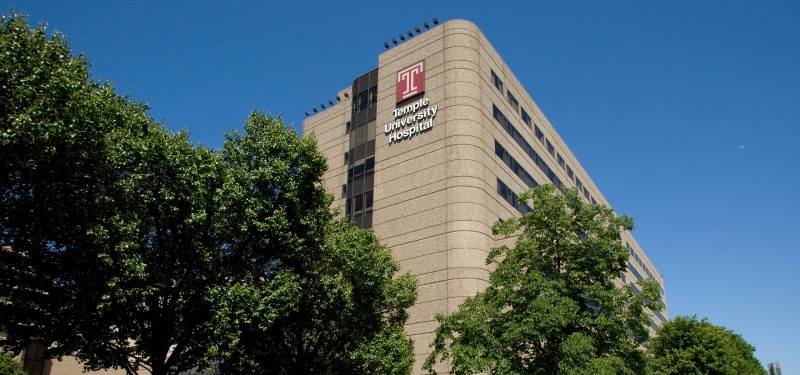
Temple University Hospital has been a fixture in its North Philadelphia neighborhood for over 125 years. Originally named Samaritan Hospital, TUH was founded by Reverend Russell Conwell, the founder of Temple University, in 1892 as a place to provide care to the inhabitants of the area. The School of Medicine, founded in 1901, was originally a night school to allow for those who needed to maintain a full time job to be able to study medicine.
Since then, Temple has developed and evolved to become a full-service medical center with facilities on this campus and others for the education of doctors, nurses, dentists, pharmacists and other health professionals. Temple University Hospital-Main Campus is located on the Health Sciences Center campus in the Nicetown-Tioga section of North Philadelphia. Additional campuses are Jeanes Campus in Northeast Philadelphia, Episcopal Campus in the Kensington neighborhood, and Northeastern Campus in the Port Richmond neighborhood.
Highlights:
- 979-bed hospital
- 119 intensive care beds
- ECMO center with cardiac, cardiothoracic, surgical, burn, neurological, neurosurgical, and medical/respiratory ICUs
- During the height of COVID, a dedicated building for COVID-19 patients with flexibility for up to 250 patients
- Active heart, lung, liver, kidney, and multi-organ transplant programs
- Dedicated Heart Failure, Pulmonology, and Lung Transplant units
- Level 1 Trauma Center
- Active maternal health services
Fox Chase Cancer Center has the country's first charter as a cancer hospital and is located on a verdant campus in the Fox Chase section of Philadelphia, which borders Montgomery County. It is one of 20 comprehensive cancer centers designated by the National Cancer Institute. The Bone Marrow Transplant unit allows for a unique two-week rotation to expand education and experience with hematologic cancer treatment and emergencies.
The Health System also includes TUH-Jeanes Campus and TUH-Episcopal Campus (the clinical campus for the Department of Psychiatry).
Each year, these hospitals admit more than 6,000 patients to the medical services providing a combined average daily census of 400 patients whose primary care is the responsibility of the medical service teams. These inpatients, together with 20,000 medical outpatients and greater than 160,000 annual visits to Temple University Hospital's active emergency room, provide a wealth of exposure to diverse pathology and patient cases that leads to excellent educational experiences.
Temple Internal Medicine Associates (TIMA)
The resident clinic, TIMA, is across the street from the hospital and serves the same vulnerable population. All categorical residents see patients here. They work side-by-side General Internal Medicine attendings who also see patients at TIMA. In addition to general medicine services, TIMA also houses a Comprehensive HIV program and a weight management clinic, provides medication assisted therapy for patients with substance use disorders and is an LGBTQ+-centered practice. TIMA is staffed in an interdisciplinary manner with embedded pharmacists, a community health worker, a social worker, nurses, and medical assistants. Patients have access to on-site phlebotomy, vaccinations, intramuscular medications, diabetic retinal screening, and procedural interventions including pap smears, abscess incision and drainage, and joint injections.
